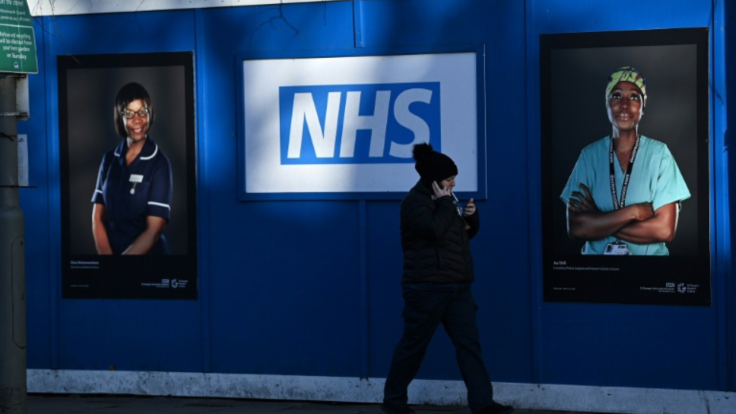NHS Launches Trial of Puberty Blockers for Kids Amid Debate Over Risks and Evidence
The trial marks a significant shift in UK gender healthcare

The NHS has launched a clinical trial of puberty blockers for children, reigniting debate over the safety, ethics and evidence base for hormone treatment in gender-diverse young people. The study, part of a structured research programme, aims to provide clearer data on long-term outcomes from puberty suppression, including developmental, metabolic and psychological impacts.
Puberty blockers, or gonadotrophin-releasing hormone (GnRH) analogues, were formerly prescribed more widely in the UK. In March 2024, NHS England restricted their use to research settings, following the Cass Review, which highlighted major knowledge gaps on effects including bone density, fertility, cognition and mental health. Health Secretary Wes Streeting described the decision as 'evidence-led,' arguing that rigorous oversight is essential.
The new trial has provoked political backlash. Rupert Lowe MP posted on X urging colleagues to sign a letter calling on the Health Secretary to halt the research. He warned that experimental drugs should not be given to minors and demanded that Parliament intervene. Lowe's intervention underscores the political sensitivity surrounding gender‑affirming care and research in young people.
Policy Shift
The trial is part of the 'Pathways' research programme, which aims to recruit around 226 participants over three years. NHS England and independent advisers argue that the study is a safer, more ethical way to examine blockers than routine prescribing, particularly given past uncertainty about long-term effects.
Professor Emily Simonoff, child and adolescent psychiatrist at King's College London and chief investigator, told The Guardian that structured trials are often the most responsible method for introducing new medicines in vulnerable groups. Meanwhile, NHS England plans to establish up to six specialist regional gender services by 2026, following the Cass Review's recommendation for enhanced assessment and monitoring in purpose-built clinical centres.
Risks, Evidence Gaps and Ethical Concerns
The Cass Review and subsequent regulatory analyses underline uncertainties about puberty blockers. Critics highlight limited evidence for mental health benefits and potential harms to sexual maturation, bone health and future fertility. Legal assessments note the intervention's impact on natural hormonal development, while advocacy groups such as Genspect call for transparency regarding inclusion criteria, long-term follow-up and participant safeguards.
Online discussion has reflected the broader ethical debate. Some advocacy organisations, including TransActual, have raised concerns that trial participation may be the only way for some children to access treatment, potentially creating delays and psychological distress. Others support research as a measured approach that balances urgent patient needs with safety.
I have just invited all MPs to sign this letter urgently calling on the Secretary of State for Health to immediately halt a new trial administering dangerous puberty-blocking drugs to young children.
— Rupert Lowe MP (@RupertLowe10) November 23, 2025
We cannot allow experimental drugs to be given to confused young boys and… pic.twitter.com/xqzsD149Xr
Just when you think transgender ideology has been vanquished- it rears its head again.
— Liz Truss (@trussliz) November 22, 2025
Doing this to children is evil. It should be a crime. pic.twitter.com/5rrECbigEZ
🚨Breaking: Puberty Blockers Trial🚨
— James Esses (@JamesEsses) November 22, 2025
The trial has been quietly approved and recruitment of hundreds of children is commencing.
Keira Bell and I demand that this dangerous and unethical trial is halted immediately.
If it isn’t, we will bring a Judicial Review.
Press release⬇️ pic.twitter.com/wZM713lRWy
I cannot believe I came to Parliament to have to point out that we should NEVER use experimental/irreversible drugs *in trials on children under 13* which halt their puberty.
— Rosie Duffield MP (@RosieDuffield1) November 22, 2025
But I will because I need to be able to sleep at night.
Hundreds of children are set to be jabbed with puberty blockers in the first NHS-backed experiment of its kind.
— Tommy Robinson 🇬🇧 (@TRobinsonNewEra) November 23, 2025
The clinical "study" will see as many as 226 children as young as ten-years-old who believe they are "transgender" take part.
You can't see an NHS GP, get an… pic.twitter.com/Owf18HXG1D
Public Outlook
The NHS trial marks a pivotal moment in UK gender healthcare, reflecting a shift from unmonitored prescribing to structured evidence-gathering. While the programme does not promise instant answers, supporters argue it is essential for building a firmer basis for future policy. The trial must gain approval from both the MHRA and a Research Ethics Committee, according to guidance from clinical advisory bodies. This dual oversight aims to ensure the study meets high standards of safety, risk‑management and informed consent. Critics caution that without rigorous transparency, the risks to children may remain insufficiently understood.
As the trial proceeds, clinicians, families and political figures will closely monitor how results shape future guidance on puberty suppression. The outcome could shape both UK practice and the wider international debate on hormone treatment in young people.
© Copyright IBTimes 2025. All rights reserved.





















